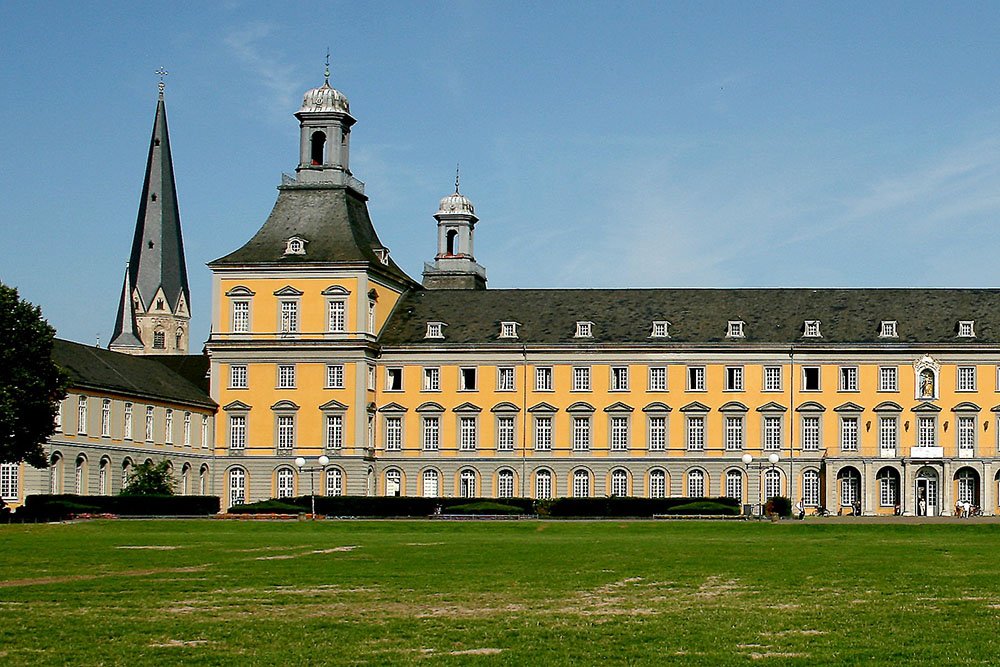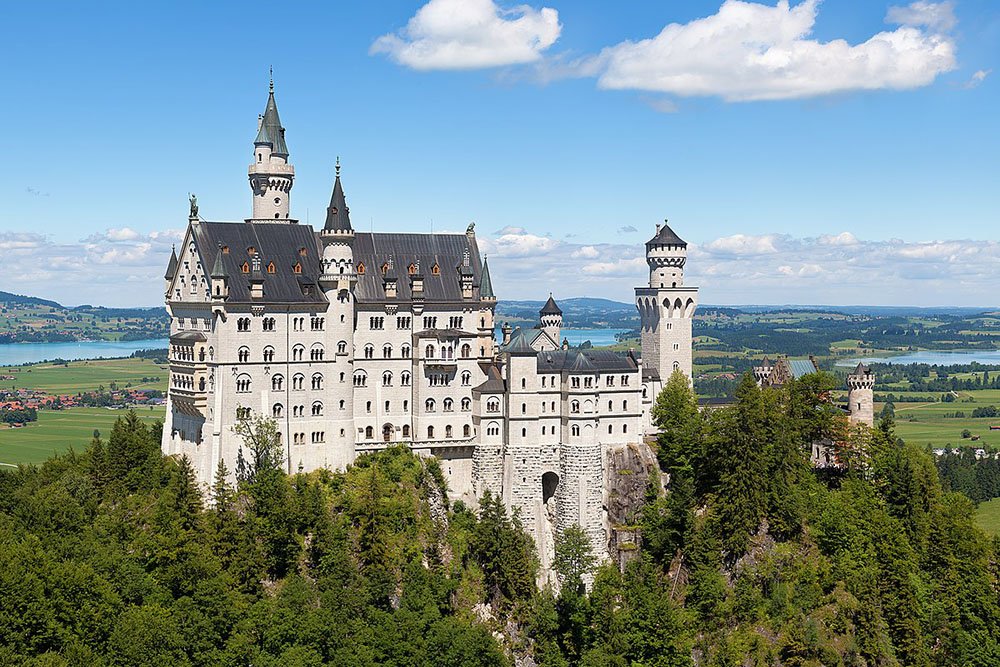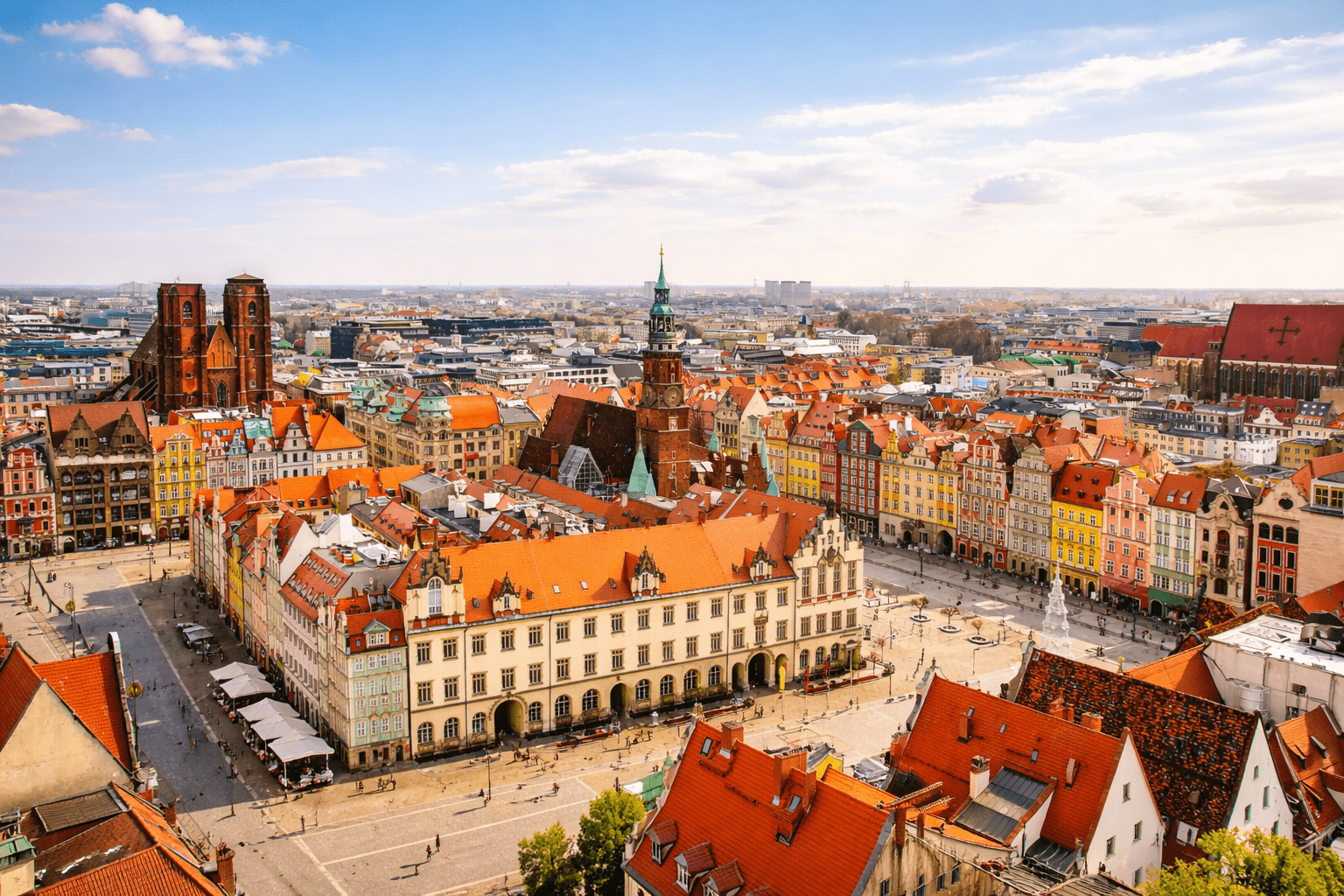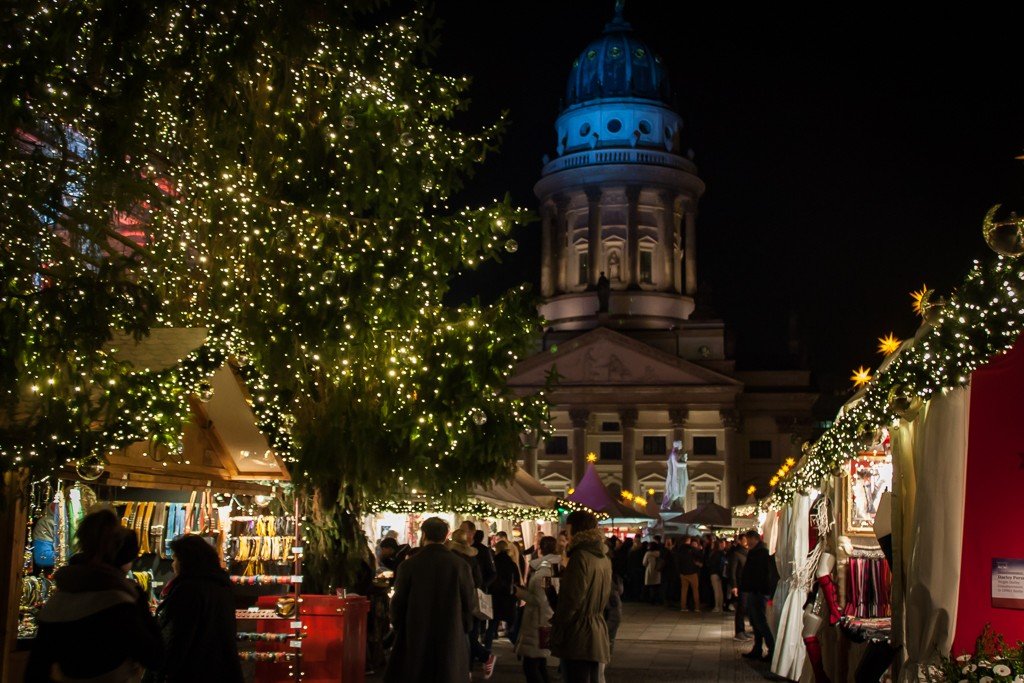This is the second part of our article 20 fun facts about Germany (Part One).
11. Universities

Germany’s university system offers a tremendously wide range of 426 public (306) and 120 private (120) institutions of the highest standard throughout the country, and not only in the large urban centers. For example, the Ruprecht Karls University in Heidelberg is the oldest university in the country and a leading institution in the fields of philosophy and law; the University of Cologne is the second oldest university in the country and is currently recognized as the one with the highest enrollment in the country (approx. 50,000); in Munich, the University of Applied Sciences is the second oldest university in the country and is currently recognized as the one with the highest enrollment in the country (approx. 50,000); in Munich, the University of Applied Sciences is the second oldest university in the country and is currently recognized as the one with the highest enrollment in the country (approx. 50,000). In Munich, the Technical University is the most prestigious in Germany and one of the leading universities in Europe and the world, as is the Ludwig-Maximilians-University with 34 Nobel Prize winners; The Humboldt University of Berlin is also recognized for its 29 Nobel Prize winners, the FOM or University of Economics and Management of Essen is recognized for its impact on applied sciences and for being the second largest concentration of students in Germany, which might catch your attention as the latter is a private university.
The German higher education system actively promotes its institutions, the private ones through funding from private sponsors and scholarships for their German and foreign students. The state universities, in addition to providing direct funding to their students, promote their cultural and educational integration abroad through the DAAD (German Academic Exchange Service). So if you are interested (no matter your nationality!) in studying in Germany , you should of course consult the website of this service, and you will see that there are no limitations to study in this country… not even the language!
12. Castles and…their relationship with Disney

Let us remember that the unification of the German territory only dates back to the 19th century, which explains the existence until that time of different kingdoms, principalities (electors and palatinates), duchies, marquisates, margravates… an enormous number of nobility! that originates mainly in the remote epoch of the Holy Roman-Germanic Empire and that coexisted in a parallel way until the unification of the German Empire that gives primacy to the Prussian Kingdom with headquarters in the city of Berlin, in the hands of the dynasty of the Hohenzollern (the same of King Frederick II “The Great”).
You will understand that with all these “reigns” their rulers needed palaces (Palast) where to live and castles or fortresses (Schloss or Burg) to defend themselves or as a show of power and, that is why in the vast German territory today we recognize more than 2100 of these buildings, a Route of the Castles (that goes from Frankfurt to Munich) and, of course, two castles that we recognize in the current image of Disney? Remember that a few paragraphs back we told you that many of the Grimm Brothers’ stories inspire today’s Disney stories! , Hence also the castles of the Black Forest (Schwarzwald): Neuschwanstein Schloss (near Munich) and the Hohenzollern (near Stuttgart) are their main image today. Don’t believe me, it’s just a matter of comparing their photos.
*A fact we bring you: the Spanish translation of the concepts of palace, castle or fortress makes no distinction, but in German or English these concepts differ, since a palace is traditionally a place of residence of the nobility and a castle a place of defense or fortress of power.
defense or fortress of power.
13. Pet control and registration

In Germany having a pet implies a great responsibility, expense and bureaucracy, the rental contracts of the houses expressly regulate the animals that can be kept at home and, in general (not unanimously) allow the keeping of dogs or cats, reason why we will focus on our beloved dogs to explain its operation, since the keeping of cats only requires filling a state registration… naturally the rules between each federated state also differ, but in general they are of the form that we will explain.
To have a puppy to accompany your days, you must take into account that you must enter a bureaucratic registration system of each federal state so that your pet has a patent, which must be visible at all times (basically its ID for the state) and also, believe it or not, it must attend classes! (yes, your dog!) and not only the owner but in some cases it is also required together, depending on the breed and its size. Also as an owner you must pay taxes, which in general per year are around 200 Euros. Also, regardless of the time of the year, you must walk them daily, at least three times a year, hence all public parks have a playground just for dogs and, in many cases, you must even register your visit in advance according to the level of occupancy.
You will also understand that with these regulations it is very difficult to find abandoned animals or animals roaming the streets, which is why families who want to have a pet, in general, must go through a long process for adoption (from foreign countries) or purchase in the regulated kennels of the country. We told you, a whole bureaucracy…
14. Bureaucracy and Deutsche Post.
With regard to the control of pet ownership, it is a very appropriate time to talk about a topic that is still widespread today: German bureaucracy, and to find out how much reality and how much myth there is about it. Let’s see…
Let’s start by saying that this myth is the terror of foreigners who come to live in this country, we also see a tremendously serious and structured society that leads us only to increase this fear and much of what we have heard is really true, but do not be afraid, nothing is so terrible. Indeed, institutions at the local, federal and national level that usually structure a poorly understandable communication (not only because of the language, which it already is) through local mail, and we are not referring to e-mail, we are referring precisely to the Deutsche Post mail, incline us to agree with this topic.
In this area, we must understand that the German Post is one of the most prestigious institutions today, created already in times of German unification (Deutsche Reichspost) has become the current Deutsche Post, a model entity to the world that remains tremendously alive, since in this country today more than 60 million letters are sent daily internally, Furthermore, this company – reformed in 1996 as such – has implemented parcel delivery services through DHL International (nationally and internationally), making it today one of the world’s largest letter and amendment companies, and with all its past and bureaucratic tradition, it is clearly an export model.
15. Taxes

Germany is structured as a Social Welfare State, that is why the payment of taxes from income, goods and large capitals are the basis of its fiscal coffers and the policies implemented by the governments, not paying them can bring you quite serious sanctions and learning to do it correctly is difficult even for the Germans themselves. Here is a little guide.
All residents in Germany must have a Tax Identification Number (Steuer Identifikationsnummer/Steuer ID) which you receive immediately after registering at your local town hall (Bürgeramt) and according to this you will be charged the following taxes:
– Religious tax (Kirchensteuer) close to 1 or 2% on the income of each person, depending on the faith that each person professes must contribute to their religious cult for the maintenance for example of buildings, if you do not profess any religion you must declare it to the State so that this tax is not charged. Remember that this country since the days of the Prussian Kingdom is the center of religious tolerance, your only obligation is to be responsible for the taxation of the religion you profess.
– Tax for Public Radio and TV (Rundfunkbeiträge) of 18.36 Euros per dwelling, in order to avoid political interference in German public radio and television.
– Solidarity Tax (Solidaritätzuschlag) of 5% on the income of each person, arose from the German reunification (of which we have already spoken extensively in the previous sections), where the inhabitants of the former western zone or of the Federal Republic of Germany , more prosperous at that time, had to contribute for the reconstruction and the new services of the east or the occupation zone of the former GDR (Soviet side). Today only about 10% of the inhabitants of this area still actually pay it, as this tax mostly ceased to be paid in January 2021.
– German social security system (Sozialversicherungssystem), which is divided into various health and social insurances on the income of each person, from the following person:
– Health (Krankenversicherung) of 15.6% or 15.7%.
– Retirement (Retenversicherung) of 18.6%.
– Unemployment (Arbeitlosenversicherung) of 2.4%.
– Welfare insurance (Pflegeversicherung) of 3.05% or 3.3% (if you have offspring).
– Accident insurance (Unfallversicherung), variable according to industry and trade, which is paid by your employer or your private insurer.
– Income tax (Lohnsteuer), calculated on the basis of 6 different tax classes. This tax is progressive and is one of the most complex to calculate, so we will not try to explain this world in this section.
– Dog ownership tax (Hundesteuer), we already talked to you in the previous section on this point and you know that the sum is around 200 Euros per year.
– Direct (VAT) and indirect (USt or MwSt) consumption tax.
Whatever your modality of work in Germany , you will finally be obliged to make an income tax return (Steuererklärung) in your respective Finanzamt. So welcome to the world of German taxes!
16. The use of cash
Speaking of money, it is a good time to tell you about one of the strangest traditions of the use of money, because you can imagine that being Germany the economic and industrial power that it is and with the amount of financial companies and international banks, the use of bank and credit cards is tremendously common and propagated, however the reality tells us that many daily actions and small and medium businesses almost work only with cash and Germans pay to pay that way (just as you read it!).
There are many reasons to stay loyal to cash, but the main ones are related to the control and use of private and personal data that comes from the use of bank cards, but it is not only fear of the private ones, but also of the state control that it can lead to. Also, the banking and financial crises after World War I and World War II respectively, have broken the confidence of Germans in these institutions, who often saw their money deposited in them affected. Finally, another more practical reason attributed to the widespread use of cash, has to do with the control of our finances, you can imagine that a society as structured as the German one needs to have complete control over the monthly expenses (… yes, paying taxes too!).
If you are wondering if the Covid-19 Pandemic influenced in any way the way Germans pay, the answer is yes, many of the businesses born in the last time accept cards as a form of payment and others in fact do not even accept cash, only cards, although it may seem paradoxical to you we see some businesses with this operation.
So you know, if you come to Germany, you should come prepared with all the cash you have or manage to change.
17. Football: a National treasure
Speaking of money, it is a good time to tell you about one of the strangest traditions of the use of money, because you can imagine that being Germany the economic and industrial power that it is and with the amount of financial companies and international banks, the use of bank and credit cards is tremendously common and propagated, however the reality tells us that many daily actions and small and medium businesses almost work only with cash and Germans pay to pay that way (just as you read it!).
There are many reasons to stay loyal to cash, but the main ones are related to the control and use of private and personal data that comes from the use of bank cards, but it is not only fear of the private ones, but also of the state control that it can lead to. Also, the banking and financial crises after World War I and World War II respectively, have broken the confidence of Germans in these institutions, who often saw their money deposited in them affected. Finally, another more practical reason attributed to the widespread use of cash, has to do with the control of our finances, you can imagine that a society as structured as the German one needs to have complete control over the monthly expenses (… yes, paying taxes too!).
If you are wondering if the Covid-19 Pandemic influenced in any way the way Germans pay, the answer is yes, many of the businesses born in the last time accept cards as a form of payment and others in fact do not even accept cash, only cards, although it may seem paradoxical to you we see some businesses with this operation.
So you know, if you come to Germany, you should come prepared with all the cash you have or manage to change.
18. Hobbies
Germans are known for their outdoor life, which makes sense if you think that winters days are hard and darkness extends for almost 6 months, hence the few sunny days in spring, summer and autumn are perfect occasions for everyone to get out of the house.
The public life of the Germans during the good weather days makes everybody crowding the streets and parks, you will see everybody enjoying these spaces and freely drinking beers and other liquors, because yes: in this country it is also allowed to drink in public (perfect or better?). Also, with more time, the Germans leave the cities and fill the wonderful forests to practice hiking, a very widespread hobby in society and, which has wonderful routes of different technical levels, accommodations suitable for all prices, fantastic landscapes full of variety and a network of excellently marked trails, which is why the Germans take out their best equipment.
Likewise, to enjoy all these places you can always count on the German public transportation system, one of the strengths of the state lies precisely in this well-connected network that allows us to reach almost all the places we propose. So, it’s time to plan, get out your travel guides.
19. Recycling
Germany is one of the countries at the forefront of the recycling system in Europe and the world, and almost all Germans take waste control and separation seriously at home (some skeptics do not believe that waste processing is kept in the chain), more or less as follows:
– Public and household garbage cans refer to the way waste is sorted: a green or brown bin for organic waste, a yellow bin for plastic, a blue bin for cardboard and a black one for unsortable rest. Just be careful not to overfill them, if they are beyond their capacity, the cleaning service will not take them.
– Glass is recycled by sorting it into colors: white, brown or green (the latter also receives the bluish and yellowish colored ones).
– The plastic and glass containers are returnable, so in our purchase a value is added for it, then in your next purchase you go with these containers and you will receive the same value charged (Pfand)… that is why you find so many containers in the German houses (they keep them until the next purchase in the supermarket).
– Incidentally, a whole informal economy is generated around the collection of containers on the street, which is why they are never thrown directly into the deposits and many homeless people take advantage of this to generate money. This also helps to keep the streets clean.
– It is also not uncommon to find in supermarkets and drugstores deposits for more hazardous waste (such as batteries, batteries or light bulbs for example).
– Collection and recycling points: large or bulky furniture is left in these places, if it is in good condition other neighbors can take it, otherwise the garbage service will pick it up sometime during the week.
– Also, in these recycling points in the street are often left products such as clothing or other goods no longer occupied at home “To give away”, it is not at all frowned upon to collect and review, it is part of the culture of recycling.
20. Home life
Finally, the German home life is something more unknown, as you will intuit, because of everything we have told you about the society, that it is not easy to acquire an invitation to visit a German house, but as soon as you do it you have to keep in mind that the first thing you should do when you enter is to take off your shoes and leave them in the corridor, it is widespread in Germany the idea of dressing relaxed and in comfort. Then you will find three more rooms, the main room (which can be a bedroom and the favorite German furniture: sofa), bathroom and kitchen, the latter the main site of social gatherings of families, also regardless of whether you live in a building or house will have a basement (Kellar).
Also, the houses usually have a number of decorative plants and spaces of different shapes and sizes of candles and candelabras.
Germans are also known for their passion for gardening, so even if their houses do not have space for gardens and plantations, you will find huge fields of small gardens in parks, forests, or on the shores of lakes and rivers, where the famous Kleingärten, usually have a small hut and all the cultivation of flowers or plants they want. If you have a house, from the time of the war you should have in your garden fruit trees and, in specific 3 Walnut trees (war survival form).
Summary:
We have given you a series of unknown, anecdotal and interesting facts about German society, so you can learn how to relate and visit the country, which as you can see is much more than bureaucracy and natural beauty: Germany is an avant-garde, progressive and very open to welcome everyone. So with our tours, we invite you to get to know and enjoy this country, where we will take you much deeper into the culture.






